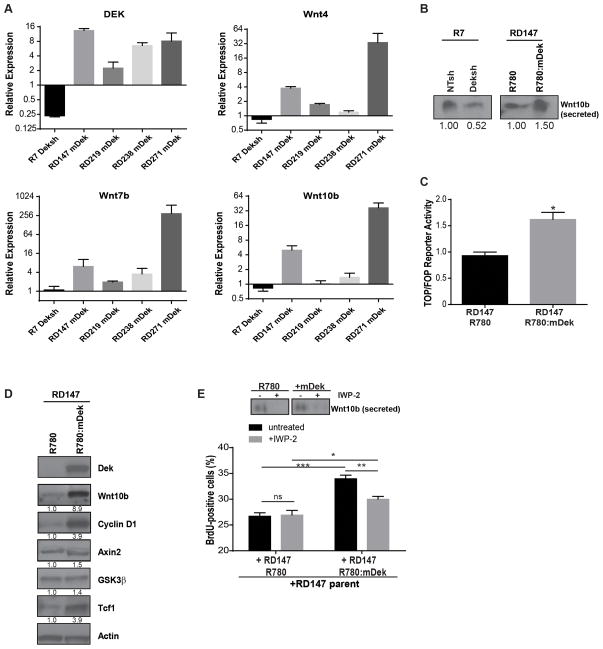Figure 4. Dek expression stimulates Wnt ligand production to drive proliferation via a paracrine mechanism.
(A) Dek expression positively regulates Wnt4, Wnt7b, and Wnt10b transcription. Dek knockdown by Deksh2 in R7 cells downregulates Wnt expression whereas Dek complementation in RontgDek−/− cell lines up-regulates Wnt ligand expression. Dek and Wnt gene expression were analyzed by quantitative RT-PCR. The horizontal line represents the normalization relative to the respective control transduced cells. (B) Dek expression correlates with the secretion of Wnt10b. Conditioned media from RontgDek+/+ R7 NTsh and Deksh2 cells and RontgDek−/− RD147 R780 and mDek cells was concentrated and analyzed by western blot analysis for Wnt10b. (C) Complementation of Dek expression in RontgDek−/− RD147 increases β-catenin transcriptional activity. RD147 cells transduced with R780 and mDek (R780:mDek) were transfected with TOPflash and FOPflash luciferase reporter assay constructs. Luciferase expression represents β-catenin transcriptional activity. (D) Dek complementation in knockout cells results in increased expression of Wnt/β-catenin target genes, including cyclin D1. Western blot analysis of whole cell lysates from RontgDek−/− RD147 R780 and R780:mDek cells was performed using the antibodies shown. Relative expression as determined by densitometry is shown below each blot. (E) Dek-induced Wnt secretion increases the proliferation of neighboring Dek deficient cancer cells. GFP-negative parental RontgDek−/− RD147 cells were co-cultured with GFP-positive RD147 R780 or R780:mDek cells. BrdU incorporation was then analyzed by flow cytometry in GFP-negative cells as a measure of cell proliferation. Cells were also treated with IWP-2, a Wnt secretion inhibitor, prior to analysis. Inhibiting Wnt secretion partially rescues the pro-proliferative effect of neighboring Dek-expressing cells. The western blot inset depicts levels of secreted Wnt10b in conditioned media in untreated and IWP-2 treated RD147 R780 or R780:mDek GFP-positive cells. The images depicted are from different blots for Wnt10b.

